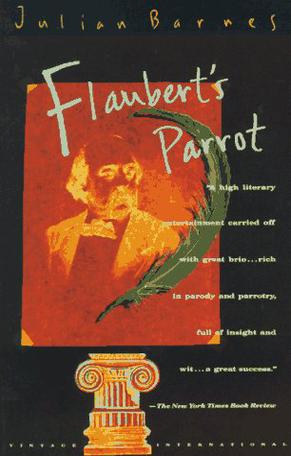

In the years before digitisation, it could be a hazy business noticing and remembering how often a word occurs in a particular book. For that you have to go to the Flaubert website run by the University of Rouen.

For instance, it can tell us that the word ecchymoses (bruises) and the date 1835 each occur a single time in Madame Bovary, but it doesn’t tell us where they, or any other word, occur. It is all vaguely witty, yet mind-numbingly useless. In the same way, you could look up the names of Emma Bovary’s two lovers, Rodolphe and Léon, and discover that Léon’s name occurs 140 times and Rodolphe’s a mere ten fewer. La occurs 3585 times, le 2366 and les 2276, elle 2129 and lui a meagre 806 – from which you might perhaps deduce the sexual slant of the novel. So the word et, which features 2812 times in the novel, is printed out 2812 times, occupying almost nine full pages.

And by ‘list’, I mean list: the book has six vertical columns to a page, and prints out the word each time it occurs. Perrin is a member of Oulipo, and his project is very Oulipian: it lists, in alphabetical order, every single word, number and punctuation mark that occurs in the 1873 Charpentier edition of the novel.

One of the more arcane items of Flaubertiana is Ambroise Perrin’s Madame Bovary dans l’ordre (2012). Obsessionįlaubert is a writer who, more than most, can provoke obsessive devotion and obsessive behaviour. But something remained from my dutiful reading, if only a willingness to return to the author at a future date. I doubt I understood the scene in the closed cab, let alone the metonymic burst of white paper shooting from the window at its shrouded climax. The book was too subtle for me, of course, and I failed to find it at all erotic. Back then, their classics were distinguished by the overall jacket colour: green for France, red for Russia, olive-green for Germany, purple and brown for the Classical world, and so on. France, a married woman, adultery: as we didn’t say then, what’s not to like? I read the novel in its Penguin translation. It still had the reputation of being a hot book – after all, it had been prosecuted for ‘outraging public morals’ when it first appeared serially in the Revue de Paris. An iconoclastic English master, just down from Cambridge, had given us a reading list which to our surprise contained foreign authors.


 0 kommentar(er)
0 kommentar(er)
